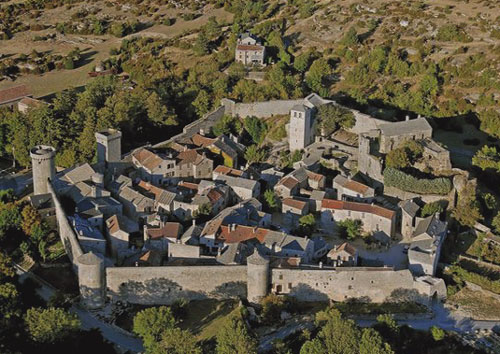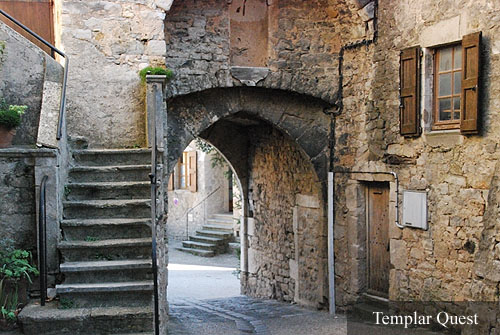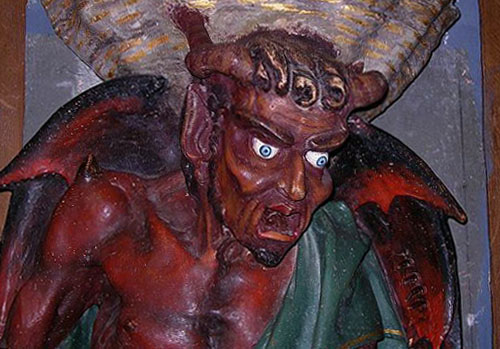Templar Quest in the Languedoc, France
Knights Templar, Cathars & Troubadours, Rennes-le-Château
Topics Covered
The Knights Templar
The Knights Templar were a religious military order, established early in the early 12th century at the time of the First Crusade. Their stated purpose was to protect western pilgrims on their way to Jerusalem, though in practice they rapidly evolved into a crack fighting force. Their full name was the Order of the Poor Fellow Soldiers of Christ and of the Temple of Solomon.
Like their brother Knights Hospitaller, the Knights Templar were monks as well as knights. To become a Knight Templar one had to be of noble birth, and worthy of knighthood. The knights took monastic vows and followed a "Latin Rule" based on that of Cistercian monks. Indeed it was a Cistercian, Saint Bernard, who gave them their "rule", ultimately that of the Benedictines. They took vows of personal poverty, chastity and obedience and spent their time fighting or practicing fighting where other monks would be working or studying. Saint Bernard assured them that in killing God's enemies they would win a reward in heaven.
Following the lead of the Count of Toulouse, western kingdoms and churches throughout Europe rewarded the Templars with land, treasures and titles. They accumulated even greater wealth by building castles and ports which earned them rents, duties and taxes; and by lending money. They invented international banking along with commercial instruments.
By the early years of the 14th century: Philip 1V of France who was heavily in their debt contrived to have his puppet pope dissolved Knights Templar on the basis of accusations that are now known to have been fabricated. The Templars were accused of heresy. Their properties in France and elsewhere were confiscated. Some Templars fled but those rounded up in France were tortured. Some - those who refused to admit the false accusations, or who confessed under torture but then denied their confessions were executed. In 1312 the last Grand Master of the Knights Templar was condemned and burnt at the stake in front of Knitter Dame in Paris.
There are many vestiges of the Templars throughout Europe from Rosily Chapel, just south of Edinburgh to the Temple Church in London and their commanderies in the Languedoc.
We will visit Templar sites, and hear talks on them by well known historians and authors, discuss the Order and its history, assess its role during the two centuries during which it flourished, investigate its demise and discuss the various mysteries associated with it.
| Fortified Templar Village in the Languedoc |
 |
|
|
| Inside a Templar Village - the best preserved in France. |
 |
Cathars & Troubadours
We offer top-of-the-range historical tours centred on the Cathars of the Languedoc, all conducted in English, on location in the Pays Cathare "Cathar Country" in Southern France. The Cathar movement and the Albigensian Crusade against the Cathars were two of the most important events in European history - with many, often surprising, world-wide resonances even today, eight centuries later.
Our tours cover historical information in much greater breadth and depth than any other tour, and are founded on primary historical sources. Tours include guided visits to "Cathar Castles" and other Cathar related sites, informal talks on Catharism, Cathar beliefs and practices, the concept of heresy, Medieval warfare and the Albigensian Crusade, along with the history of the "Pays Cathare" - Cathar Country. Talks also cover the ancient culture of the area including the role of the medieval Counts of Toulouse and the medieval Inquisition. You can also learn about the local language, Occitan, the first post-classical literary language of Europe - the language of the troubadours.
We emphatically do not offer the standard tourist experience, so there are no large groups, no standard scripts, no waffle or pseudo-history, no cutting corners, and no evasion of penetrating questions. These tours offer an holistic experience, encompassing stimulating and enthralling talks, wonderful conversation, delicious local food and wine, and enchanting scenery.
Information provided includes historical and cultural background, illustrations, maps and timelines - even an introduction to the esoteric world of Gnostic Dualism. You will learn some medieval essentials: how to spot a medieval Cathar, how to besiege a Medieval Castle, and how to burn a heretic. Escorted visits include trips to key historic locations such as Carcassonne and Montsegur. While we endeavor to ensure strict historical accuracy of the information provided, we appreciate that this is a vacation in the South of France, rather than a university course. - so no one will mind if you decide to spend some of your holiday sitting in the Languedoc sun and drinking some of the famous Languedoc wines.
For more information please visit Cathars & Troubadours
Rennes-le-Château & Mary Magdalene
Rennes-le-Château is a small village in the Languedoc. It lies at the centre of a series of mysteries focused on a nineteenth century priest, Abbé Saunière, who was the curé of the church here and involving theories about the nature of the Holy Grail.
A number of books have been written about Rennes-le-Château, including Holy Blood, Holy Grail and The Da Vinci Code. We will review the various theories and assess how much validity they carry.
Other: ranging over topics such as Otto Rahn and Montsegur, the Priory of Sion, The Kabbalah, Mary Magdalene, The Sacred Feminine, and the Gnostic Gospels.
| The demon Asmodeus supporting the holy water stoup at Rennes-le-Château |
 |
 |
| Templar Quest |
| Quest Topics - Templars / Cathars / R-le-C |
| Prices, Reservation and Payment |
| Practicalities |
| Photographs |
| Suggested Reading |
| tours@templar-quest.com |
| Terms & Conditions |
